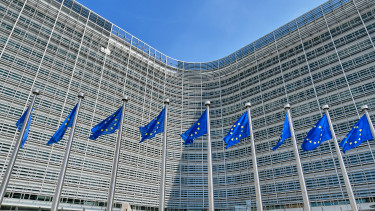Hungary to link validity of immunity certificates to third dose of COVID-19 vaccine

The cabinet has also mandated the Coronavirus Task Force to work out plans of vaccination campaigns (days) for each settlement of the country where they would deliver COVID-19 vaccines.
As usual, we have received morsels of information that should be available on a regular (daily) basis, rather than being given out on an ad hoc basis by any government official, as if they were treats for ‘good boy’ Barky that rolls over when asked to.
Gulyás said there are 4,508 free hospital beds and a capacity for the invasive ventilation of 507 people. He added that new capacities could be added to these.
The minister leading the Prime Minister’s Office said it was imperative for everyone to get their third (booster) doses when needed. The ‘immunity’ of 3.7 million Hungarians will ‘expire’ on 10 December, he said, adding that six months since their second jab will have passed by then.
Gulyás also said the one-week vaccination campaign launched on 22 November (after a preparatory phase of 2.5 weeks nonetheless) will be extended by yet another week to 12 December.
He reminded that more than 100,000 doses of COVID-19 vaccines were administered per day between 22 and 28 November. He admitted that about half as many people asked for their jab this week, but that is still three times as many as in the preceding week.
Whether or not there will be a fifth wave in the pandemic currently greatly depends on how many people take up their third jab,
said Gulyás.
To put these figures into perspective, take a look at the graph and table below. It appears that the no-reg vaccination campaign week did not persuade masses to get their first and second doses.


Immunity certificates will be valid only with those that received their third dose, but it is yet to be decided when this measure will take effect, he added.
There is scientific evidence that the effectiveness of COVID-19 vaccines against infection wanes over time (4, 5, 6 months), i.e. those that were fully vaccinated outside this period have a much greater chance of contracting coronavirus.
Linking the validity of immunity certificates to third doses may boost Hungarians’ willingness to get vaccinated, but only if their holders are given serious privileges over those that do not have them. Under current regulations, immunity certificates are required for those that want to attend sport events, music or dance events, concerts with audiences in excess of 500 people, and other indoor events. That’s about it. It’s hardly an extremely strong incentive to get inoculated for the refuseniks.
Gulyás estimates that the Coronavirus Task Force will take a decision on when this measure will be put into effect but stressed that some time will need to be left for people to get their third doses. “If I had to guess, I’d say the measure could take effect from January,” he said.
Those that have a medical condition preventing them from getting inoculated against SARS-CoV-2 will need to be taken into consideration by the new regulation, as well, he said. As an example, he said that doctors advise anyone that had coronavirus infection within two months not to get their third dose yet.
Addressing the controversial issue of mandated vaccination, Gulyás said this should be a decision on a national level, but it’s not a problem if the European Commission makes recommendations in this respect. He referred to European Commission President Ursula von der Leyen telling reporters on Wednesday that in her view it was appropriate to have a "discussion" about mandatory vaccinations, given how many people remain unvaccinated in the EU.
“How we can encourage and potentially think about mandatory vaccination within the European Union, this needs discussion. This needs a common approach, but it is a discussion that I think has to be met,” she said.
Gulyás said that Hungary’s actions have been appropriate so far, but
it is difficult to say today whether it can be avoided to take further steps from here.
We have no information that the Omicron variant has already emerged in Hungary, said Gulyás.
The majority view of experts is that the pandemic has peaked or peaking now. The number of new infections and deaths could follow with a ten-day delay. We hope that the pandemic will be on a descending trajectory by Christmas and we will not need to implement new measures,
he said.
The daily test positivity rate retreated to 24.9% from over 36% a day earlier with 36% more tests performed (42,000). The 3-day percent positive also dropped to 30% from over 32%. As you can see on the charts below, the 3-day / 21-day test positivity rate dipped to under 100% six times, every time on these three 'weekend' days of the last two weeks. It is now up at 134% again.
If we want to be certain that the key epidemiological figures are starting to improve, the 7-day average of the 3-d/21-d positivity rate would need to go south of the 100% mark. It is currently up at 109.35% from 108.5% yesterday, yet it is well under 160% recorded in late October.
The abatement of the current 'wave' will first be indicated by the percent positive peaking and retreating. It will be followed by a drop in daily new COVID-19 cases, hospitalisations, the number of ventilated patients, and eventually coronavirus-related deaths.
Changes in the positivity rate are reflected in the other epidemiological data with a delay:
- new cases– 3 to 5 days
- hospitalisations – 7 to 10 days
- patients on ventilator – 12 to 15 days
- deaths – 18 to 22 days.
Unfortunately, the positivity rate is likely to go higher which entails a rise in the number of Covid deaths too. As regards the latter, administering the dead most likely cannot keep up with reality therefore the divide between the official figures provided by the Coronavirus Task Force and the Central Statistical Office's (KSH) mortality figures to be released several months later will keep widening.
Given the poor quality of input data, uncertainties in forecasting are huge. In a best-case scenario, the current 'wave' could peak (in terms of the percent positive) within a week, but it is also possible that it will not do so before 15 December, in which case Covid deaths would not peak before 10 January.



Gulyás was asked again, just like he is every time he meets the press, when can the public get information about the vaccination status of Covid patients in hospital, on ventilator and those that died.
He said he does not know about a central linkage, adding that there are such statistics in some hospitals. The National Public Health Centre can come up with such statistics if it wishes to, he replied.
The minister has also addressed the controversial change in the protocol under which hospitals now have to report the number of Covid patients on ventilator.
As of Monday, without any warning, remark or explanation, the Coronavirus Task Force started to publish only the number of Covid patients in invasive ventilation. The number of patients supported by noninvasive ventilation (NIV) is not published.
In effect, the Coronavirus Task Force has rendered a key metric of the pandemic quasi useless.
Invasive ventilation qualifies as life-saving procedure, hence this is the one that has an information value,
he responded when asked about the controversial change in the reporting protocol.
This makes absolutely no sense. First of all, several studies have shown that noninvasive ventilation can avoid intubation in a large percentage of Covid patient (almost half of them). Given that the chances of survival gets lower if one needs to be intubated (invasive ventilation) NIV can also be regarded as a life-saving procedure.
Secondly, Gulyás may even be right, but the Coronavirus Task Force provided absolutely no explanation to suddenly changing the protocol amidst a surge in new cases, and, more importantly, it withholds data on Covid patients in NIV. Why bother statisticians and analysts with so many ugly figures, right?
This year's growth estimate is not at risk, it is almost certain that GDP will grow by 6 to 7%, said Gulyás. If there was no chip shortage in the automotive industry, this could be even bigger, he added.
We are awaiting the central bank's updated projections, also because they will be the benchmark in the pension hike too, said the minister. According to the current prognoses, inflation could be greater than 4.0% and may reach even 5.0% in 2022, he added. MNB Governor György Matolcsy said annual average inflation is estimated to come in between 4.7% and 5.1% next year, which would entail a larger-than-planned pension raise.
The budget will need to be amended, we are awaiting the central bank's latest inflation estimates, said Gulyás.
The budget rests on sound footing, and this year's economic growth of 6 to 7% in itself ensures a greater elbow room, and we expect growth to remain above 5.0% also in 2022, he remarked about the relationship between the budget and inflation.
The cabinet will raise teachers' wages by 10%, he confirmed, while a survey by the teachers' trade union found that the majority rejects it as insufficient.
Cover photo: MTI/Noémi Bruzák








